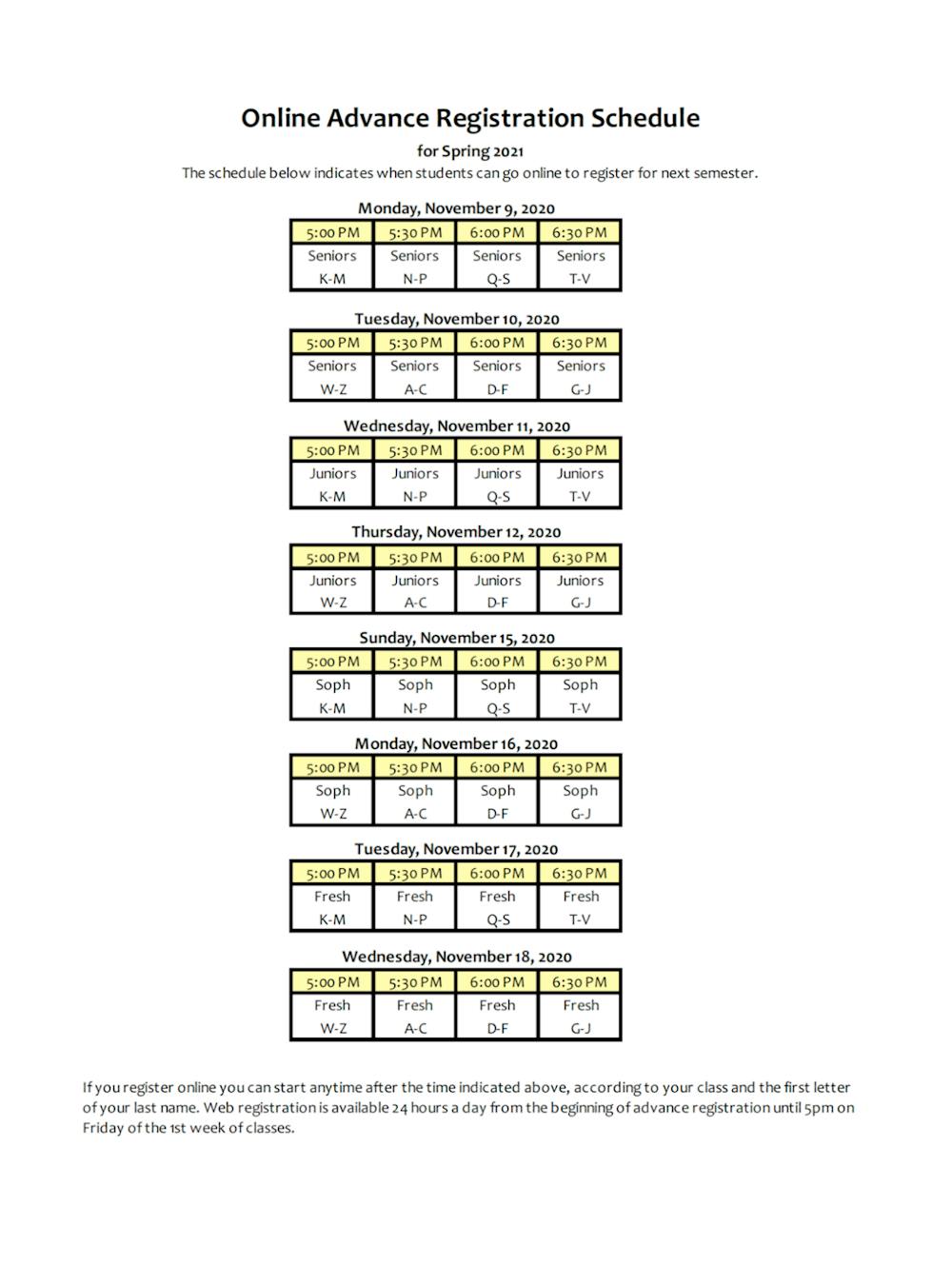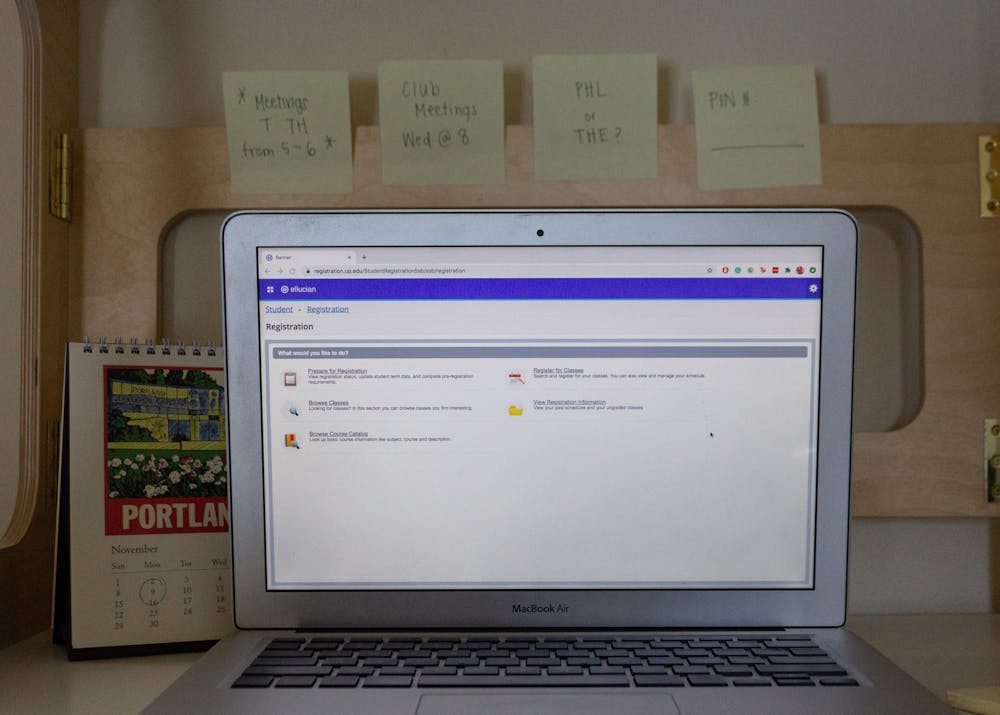Correction: A previous version of this story gave the wrong ending date for registration. It is Nov. 18, not Nov. 13.
The common campus murmurs of registration are behind us, for the time being, and registration for Spring 2021 might be the last thing on our minds. But for students returning either online or to campus for spring semester, it’s important to prepare.
Registration begins on Nov. 9 for seniors, followed by the rest of the school, ending on Nov. 18 with the freshman.

Registration dates and times provided by UP.
Being prepared is essential to getting into the classes you need. DegreeWorks is a great place to start looking for classes. Once you log in, you can find what classes you’ve taken and the classes you still need to take to complete your major or minor.
To actually register for classes, you’ll need a registration PIN. Schedule a meeting with your academic advisor and they will share your number with you. You need the PIN to access the registration portion of Self-Serve on your day to register for classes. While you are meeting with your advisor, you can ask them any registration related questions. They can help make a plan for the upcoming semester. Appointments fill up fast, so schedule one when you can!
Another online resource is Coursicle. It can help plan out a schedule, once you have your classes in mind. Coursicle syncs with the school’s catalogue of classes so you can create a schedule with the exact classes and times. The website provides a helpful visual element to see what class times overlap or when you have free time. You can also make multiple schedules to plan out alternatives if a class you wanted fills up.
Once you’ve found the classes you want to take there are many ways of getting information on the people teaching them. Rate My Professor is a popular online resource where you can read reviews of specific instructors, but keep in mind that every student learns differently.
If you want to get away from the computer, talking to other students about their experiences with a professor might offer the best insight into what a class is like. Consulting upperclassmen is also helpful when trying to find out what classes to take next to keep you on track for your major or if you just need to fill an elective and have no idea what you want to take.
Keep an eye out on Self-Serve to see what classes you want are already full or are filling up fast, so you’ll know how to adjust your schedule.
After you’ve done all your research and have set your sights on classes and assembled a schedule, it helps to have all the Course Registration Numbers (CRNs) compiled into one document, ready to copy and paste when your time comes to register.
If a class you want fills up, many departments have electronic waitlists that students can be added to while registering for their courses, according to Assistant Registrar Carolyn Blumenson. Although professors are not authorized to register students to a class if it's full, it may also be helpful to reach out to them and see what they suggest. Registration can be stressful in the best of times. Being prepared and aware of your resources can help ease some of that stress.
Will Mulligan is a reporter with The Beacon. He can be reached at mulligan22@up.edu.








